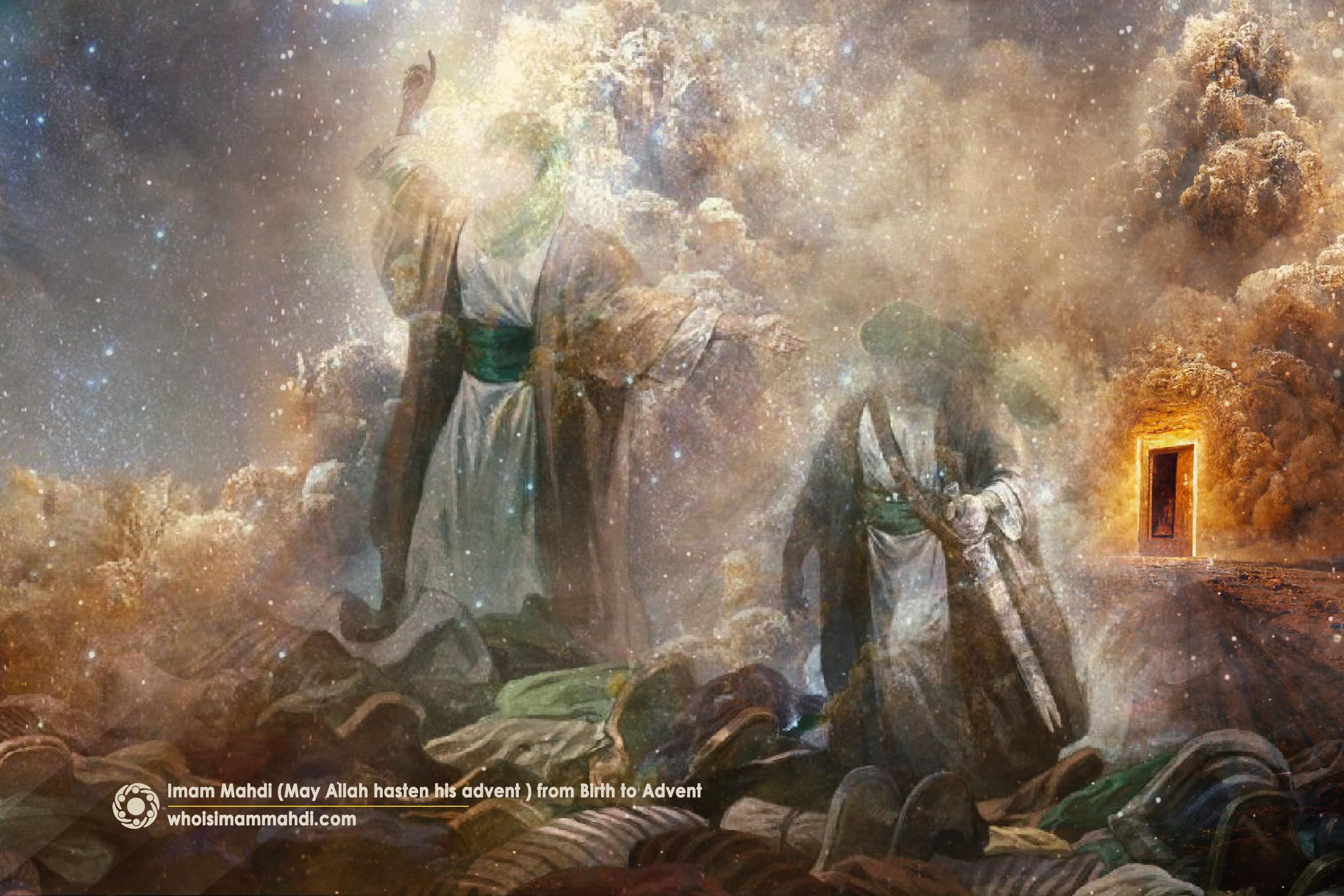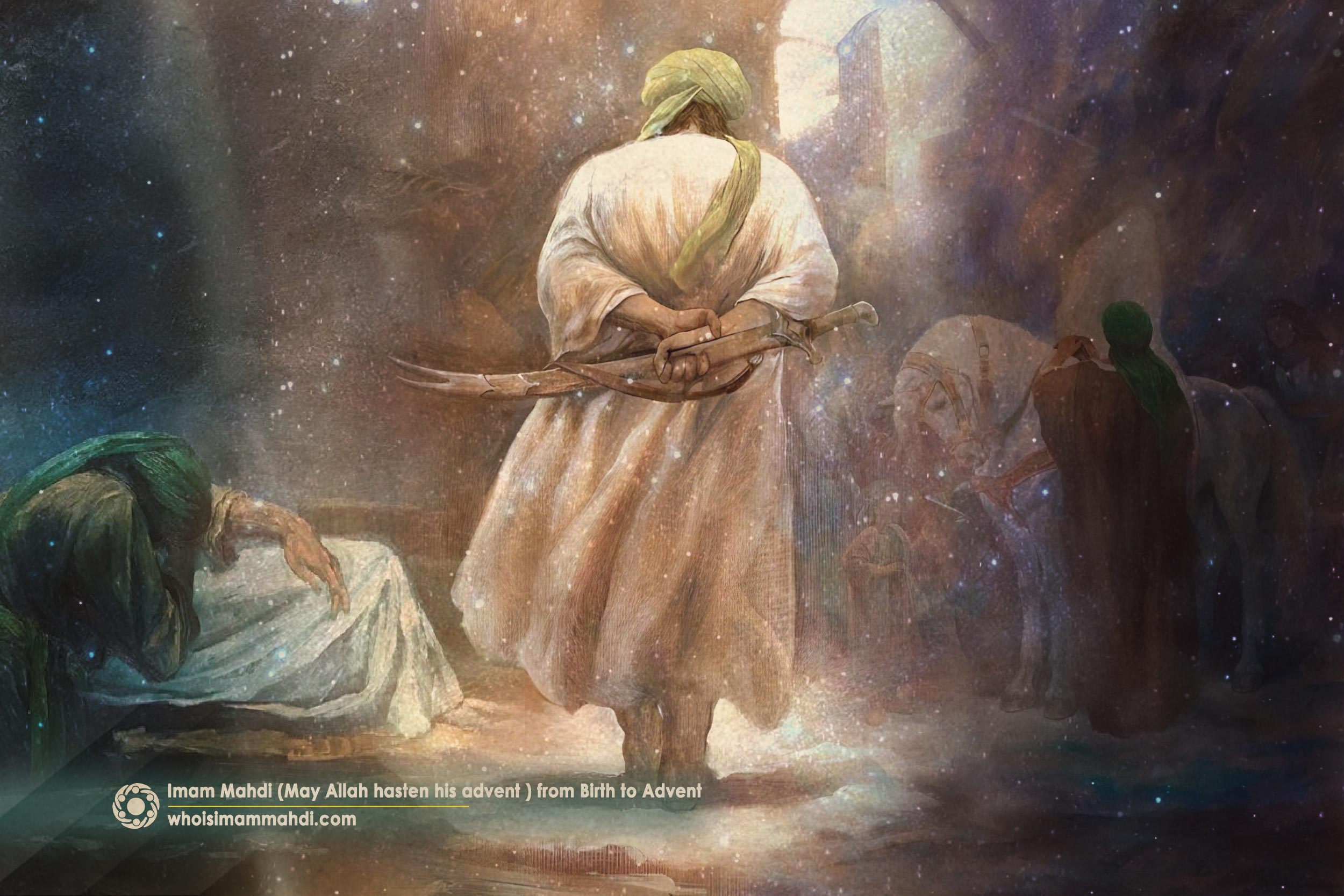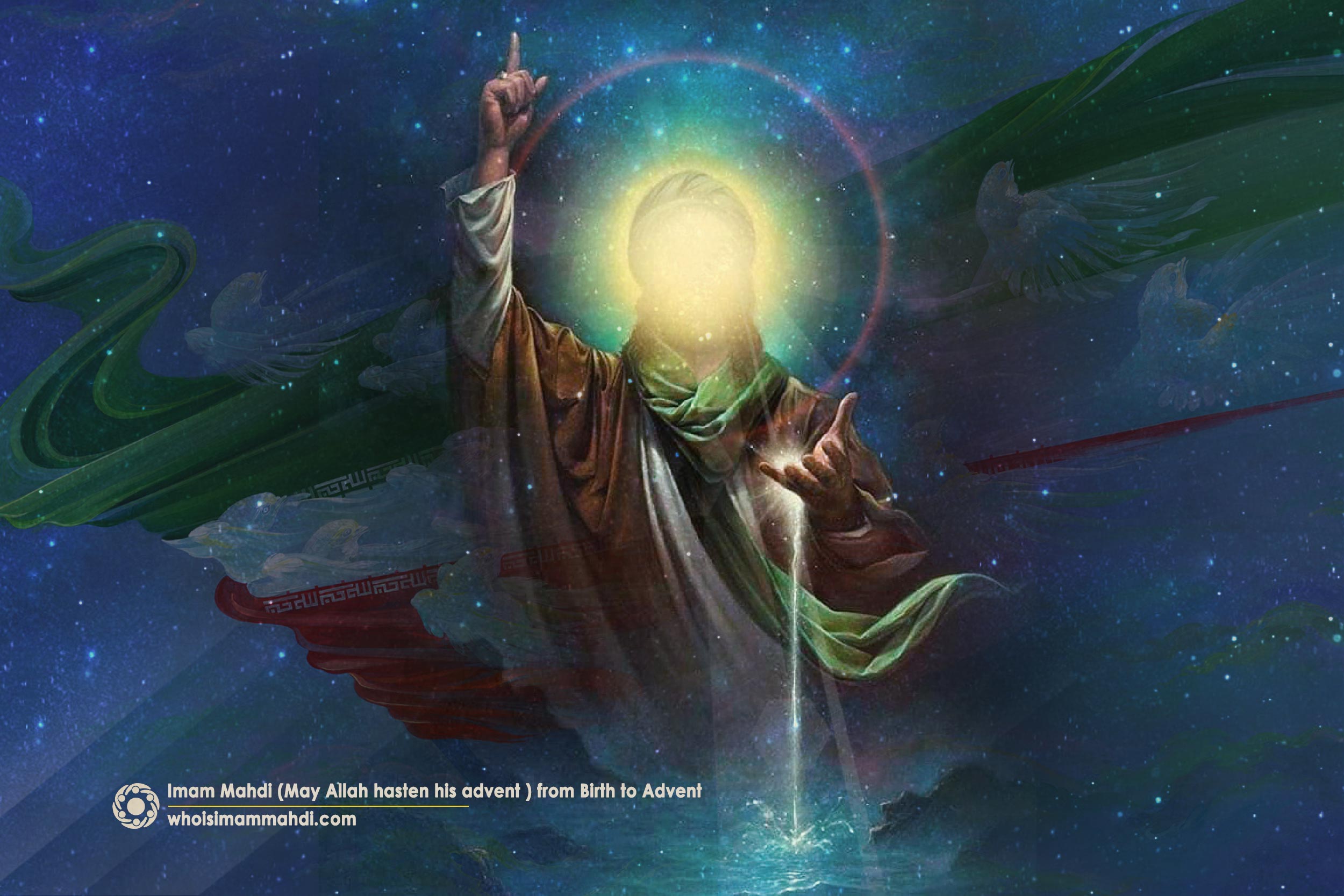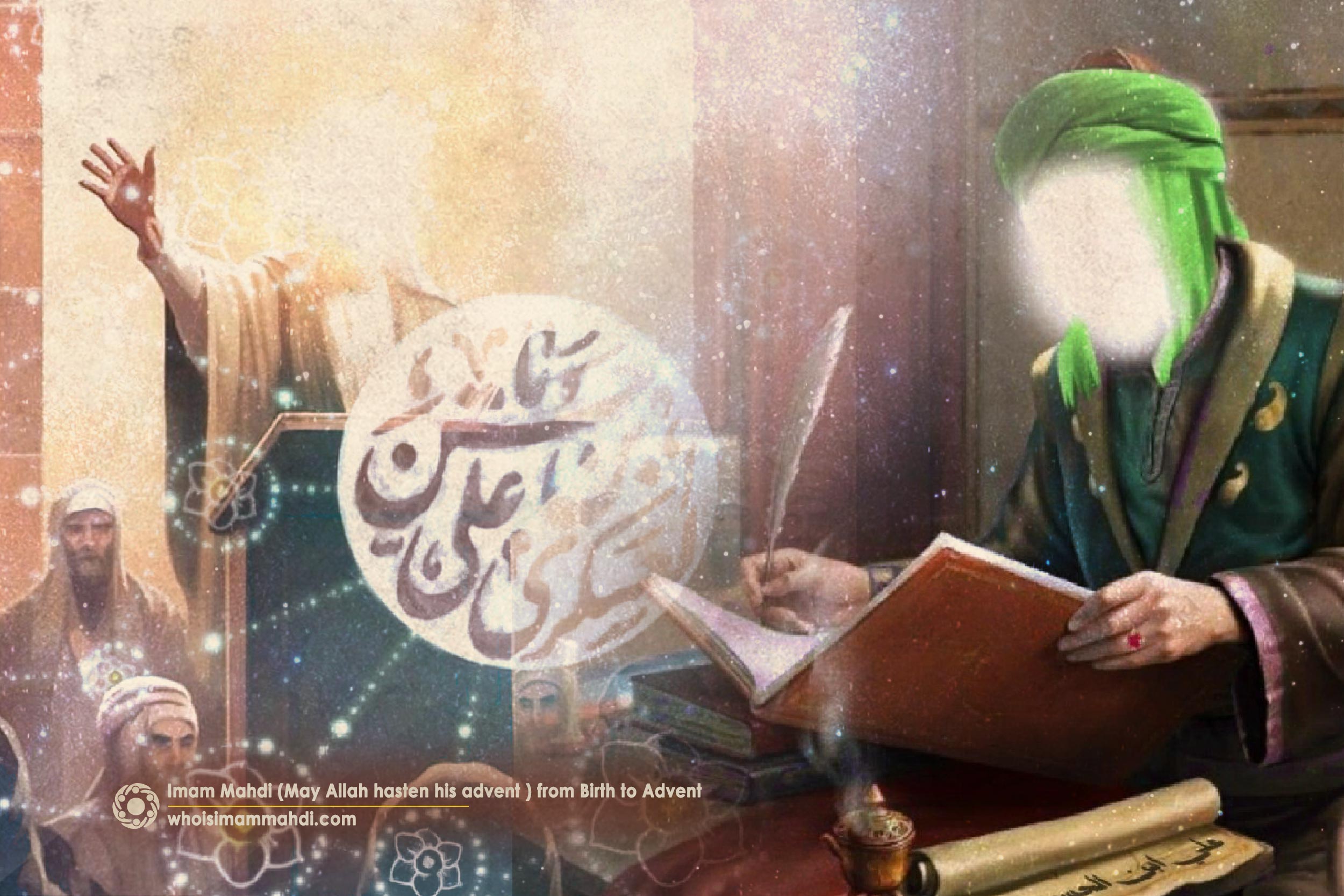The Succession to Prophet Muhammad (PBUH) after Ghadir
The rule of Imam Ali (PBUH) following the Prophet’s passing can be regarded as the most challenging period in the history of the rule of the Infallibles. The disregard for Imam Ali’s position after Ghadir abruptly changed the course of Islam and the growth of Muslims. People who had experienced the rule of an infallible expert during the leadership of the Prophet (PBUH) and accepted the deputyship of Imam Ali (PBUH) at Ghadir, fell prey to conspiracies and tribalism after the Prophet’s departure. They forgot the importance of divine leadership and returned to their previous beliefs and practices except for a handful of people. Even after fourteen centuries, Shias still bear the consequences of losing the unique opportunity for the rule of the infallible expert and the failure to recognize the position of the Imamate and divine leadership after Ghadir.
This was while the virtues of Imam Ali (PBUH) in faith, morality, bravery, and combat were well-known and repeatedly acknowledged by the Prophet (PBUH) and even Gabriel, the Trustworthy Spirit. At a time when no one dared to declare their faith, Imam Ali (PBUH) was the first to embrace Islam. In the most difficult times like the Pledge of the Tree, he was the first to pledge allegiance to the Prophet (PBUH). He was the one who risked his life by sleeping in the Prophet’s bed at the night of migration to Medina. “And among men is he who sells himself to seek the pleasure of Allah; and Allah is Affectionate to the servants” (Quran, 2:207). Exegetes of the Holy Quran believe that this verse was revealed in connection with Ali’s sacrifice and bravery at laylat al-mabit (the night of sleeping in the Prophet’s bed).[1] The Prophet also entrusted him with the responsibility of returning the entrusted items and collecting debts and bringing the most beloved family members of the Prophet to Medina.
He accompanied the Prophet during the event of Mubahala as his soul.[2] He was among the Household of the Prophet (PBUH) and the Verse of Purification was revealed in his honor.[3] He never turned his back on enemy and defended the Prophet (PBUH) in the battles so valiantly that an angel proclaimed this verse several times: “There is no sword but Zulfiqar, and no hero but Ali.”[4] In hardships, he was always the loyal brother to the Prophet and was the first in everything. He was the one who lifted the door of Khyber in the Conquest of Khyber and the one who recited the verses of Bara’a to disbelievers. He was the Chief of the Religion[5] and the Chief of Believers.[6] He embodied both the pinnacle of kindness and the utmost firmness. There were no contradictions between his powerful governance and his ascetic lifestyle. He was the inheritor of the knowledge of prophets. He was the guardian appointed by Allah and the Leader of the Successors, and he was bestowed the title “Amir al-Mu’minin” (Commander of the Faithful) by God.[7]
This is only a small glimpse of Imam Ali’s countless virtues. The Prophet (PBUH), under God’s command, selected such a successor at Ghadir to guide the Ummah after him and to lead not only Muslims but all humanity to the status of Allah’s deputy. However, after Ghadir, with the Prophet’s departure, the situation took a different turn. Imam Ali (PBUH) was unjustly removed from his rightful position as the Prophet’s successor, and the Muslim community embarked on a different path, which brought immense loss to not only the Muslims of that time but to all humanity.
The Youngness of Islam and the Dominance of Tribalism after Ghadir
Establishing a new belief system requires practice, consolidation, and time. Despite the invaluable presence of the Prophet (PBUH), Muslims had only a short time to solidify pure Islamic beliefs and values. The 23-year period of the Prophet’s mission included three years of secret and limited invitation to Islam, three years of social and economic boycott and life in Sh’ib Abi Talib,[8] migration to Abyssinia[9] and Medina, and numerous battles. Though every opportunity during the Prophet’s life unveiled divine laws and the values of Islam, tribalism and ethnic values, deeply rooted in the people of the Arabian Peninsula, resurfaced as soon as the Prophet passed away. The people, who once rallied around the Prophet, migrated at his command, supported their fellow believers financially and physically, and were ready to sacrifice their lives and wealth for them, suddenly forgot everything after Ghadir and the Prophet’s departure and reverted to their ancestral and tribal values. It was as if Ghadir had never happened, and the Prophet (PBUH) had not appointed a successor. They denied Imam Ali (PBUH) and ignored his rights; disregarding his knowledge, virtue, and divine expertise, they chose a successor from among themselves.
This marked the start of the community’s separation from the infallible expert, a story that continues to this day. Instead of living alongside the infallible guide and striving to achieve the purpose of creation and become similar to Allah, we have repeatedly tasted the bitterness of separation from divine guidance and experienced the oppression and harms of the rule of the non-expert.
The Necessity of Maintaining Islamic Governance after Ghadir
Establishing a divine government has been a goal pursued since the time of the first Prophet and has always been at the forefront of the religious and educational missions of all prophets and the infallibles Imams. Every rational mind accepts that implementing the divine plan to lead people to the purpose of their creation is impossible without a suitable framework. Without a divine government structured according to the laws and teachings of religion, implementing religious commandments is incomplete or impossible, and naturally, we will not reach the intended goal.
After Ghadir and the Prophet’s departure, Imam Ali (PBUH) faced an Islamic government that the Prophet (PBUH) had labored for twenty-three years to establish, enduring all kinds of hardships, sanctions, tortures, and insults, sacrificing financial resources and his dearest companions. However, alongside this government, Imam Ali (PBUH) faced a community that, with the exception of a few individuals, had forgotten the Prophet’s teachings and showed little interest in divine governance although they had experienced the sweet period of the Prophet’s rule as an infallible expert. In such a situation, preserving Islam and maintaining Islamic governance was the top priority for Imam Ali (PBUH).
For an infallible person, who understands the necessity of a divine expert to guide people and elevate them to their true status, witnessing a community that prefers non-divine values, tribalism, and acquiring the inanimate, vegetative, and animal perfections over the rule of an expert Imam and worldly and eternal bliss is the hardest thing. Yet, for the sake of preserving Islam and the nascent Islamic community after Ghadir and the Prophet’s departure, Imam Ali (PBUH) had no choice but to endure a long period of patience and silence in the face of people’s deviation and this blatant injustice. This patience lasted for twenty-five years, as Imam Ali (PBUH) mentioned in his ash-Shiqshiqiyah sermon[10] that during this period, the grown up were made feeble, the young grew old, and true believers acted under strain till they met Allah for death, and for the Imam, “there was pricking in the eye and suffocation (of mortification) in the throat.” However, despite his patience, Imam Ali (PBUH) never shirked his duties as a social, political, and military advisor. Whenever necessary, he advised and acted as a minister for government officials, helping to avert dangers to Islam and the Muslim community, whether scientific or political, to the best of his ability. Despite the injustice done to him and the severe grief caused by the oppression leading to the martyrdom of Lady Fatima Zahra (PBUH), Imam Ali (PBUH) did not stop prioritizing Islam’s goals and assisting the Muslim community.
The Importance of People Turning to the Infallible Expert of Their Own Free Will
The people who, after Ghadir and the Prophet’s passing, scattered from around his successor, abandoned Imam Ali (PBUH), and made choices based on their tribal criteria, did not benefit from their arbitrary decision. Instead, by surrendering to lower dimensions of their being, they gradually forgot the path to the purpose of their creation, and at best, only adhered to the outward principles of Islam. In truth, distancing themselves from Imam Ali (PBUH) meant straying from the right path, which was to rise them to Allah and His attributes and names.
The consequence of this betrayal was enduring twenty-five years of unjust governance and submitting to the rule of the non-infallible, and this led to deep deviations and fundamental problems within the Muslim community. These issues not only distanced Muslims from the true criteria for bliss and the profound principles of Islam at that time but also later imposed heavy financial and human costs on Imam Ali (PBUH) to combat corrupt groups like the Nakithin,[11] the Mariqin,[12] and the Qasitin[13] and address the innovations (bid’a) and deviations that arose in the community.
It is Allah’s law not to change the fate of a people unless they themselves desire it.[14] Sometimes, the time needed to mature and recognize the need for the rule of an infallible expert and understand his unique position and key role in leading us to the purpose of our creation can take decades or even centuries.
During the time of the second Caliph, despite the Quran’s emphasis on human equality, people witnessed racial discrimination and the superiority of Arabs over non-Arabs, Arabs of Qahtan over Arabs of Adnan, Quraish over non-Quraish, and so on in the distribution of public funds.[15] They saw important matters being decided without consulting the Prophet’s companions, the appointment of unworthy individuals like Yazid ibn Abu Sufyan,[16] Mu’awiya,[17] Sa’id ibn al-As,[18] and others to positions of power,[19] the prohibition of narrating the Prophet’s hadiths and their burning on the pretext of mixing with the Quran,[20] as well as the creation of innovations in religion. They began to realize their mistake in preferring the non-divine government over the divine one.
This general discontent intensified during the time of Uthman, the third Caliph. Appointing incompetent Umayyad rulers to positions solely due to kinship with the Caliph,[21] lavish gifts to the Umayyad family,[22] plundering public funds,[23] inappropriate treatment of the Prophet’s companions, and appointing individuals like Ibn Abu Sahr, rejected by the Prophet, to governmental roles[24] caused widespread anger against Uthman. Consequently, a group of people from Egypt, Kufa, Basra, and Medina revolted against him,[25] and after a forty-day siege,[26] they killed him.
Twenty-five years after Ghadir, the people, weary of discrimination and disorder, turned to Imam Ali (PBUH) and insisted on choosing him as their fourth Caliph in 35 AH, not as the infallible expert who could elevate them to the position of Allah’s deputy. Only a few close companions of the Prophet (PBUH), like Salman, Abu Dharr, Miqdad, and Ammar, recognized Imam Ali’s rightful position as the Prophet’s successor and were enriched by his guidance as an infallible Imam.
Cleansing the Government of the Actions of Unjust Leaders Twenty-Five Years after Ghadir
Uthman’s actions, which led to his assassination, also set the stage for the battles during Imam Ali’s caliphate. However, Imam Ali’s rule, years after Ghadir, was an opportunity to rebuild the Islamic government and cleanse it of innovations and deviations. Despite Imam Ali’s numerous virtues, his justice is often highlighted. Imam Ali (PBUH) fought against oppression, no matter who the oppressor was, and he claimed the rights of the oppressed, wherever they were.
Thus, after the insistence of various groups to choose him as Caliph, Imam Ali (PBUH) delivered a sermon,[27] stating: “By Allah, even if I had found that by such money [granted by Uthman] women have been married or slave-maids have been purchased, I would have returned it (to its owners).” During his caliphate, public funds were distributed equally without considering background, tribal affiliations, or whether individuals were Arabs or non-Arabs, unlike the distribution during the second Caliph’s time, which was based on tribal lineage and early conversion to Islam.
Though Imam Ali (PBUH) showed utmost forgiveness and flexibility regarding personal matters, he never compromised on enforcing divine limits and laws, even if it meant losing people from his army or them joining the enemy’s army. Questioning Abdullah ibn Abbas and whipping Hassan ibn Thabit for his misconduct during Ramadan are just a few examples. In reality, upon assuming power, Imam Ali (PBUH) made every effort to implement the values and principles of the Prophet’s government in society. Though he had patiently waited for twenty-five years after Ghadir to maintain Muslim unity and did not show any extreme reactions, during his rule, he tried to establish social justice, revive the principles of the Prophet’s government, and rebuild the Islamic society. Of course, this effort cost him three major wars during his five-year rule.[28]
The Battle with the Nakithin, Qasitin, and Mariqin
In 36 AH, about a year after becoming the Caliph, Imam Ali (PBUH) had to fight the Nakithin or oath-breakers. The Battle of Jamal (Camel) was led by Talha and Zubair, who were disappointed with not being appointed as governors of Basra and Kufa under Imam Ali’s rule; provoked by Mu’awiya, they sought power over these regions. They allied with Aisha, who joined them under the pretext of avenging Uthman’s blood. This battle resulted in significant casualties on both sides and ended with Imam Ali’s victory.
Afterwards, Imam Ali (PBUH) moved his caliphate center to Kufa. In 37 AH, a battle ensued between Imam Ali (PBUH) and Mu’awiya, the son of Abu Sufyan and the governor of Sham, who refused to pledge allegiance under the pretext of avenging Uthman’s blood. The Battle of Siffin, on the verge of Imam Ali’s victory, was brought to arbitration by a deceitful tactic of the enemy, raising the Quran on spears, and the refusal of some of Imam Ali’s army to continue fighting Mu’awiya. The arbitration, manipulated by the simple-minded Abu Musa Ash’ari, prevented the Imam’s army from achieving victory.[29]
Following the Battle of Siffin, a group that opposed the arbitration started rebelling, declaring the arbitration as blasphemous and seeking to annul it. Also, another group later referred to two verses from the Quran (Surah Al-Ma’idah, verse 44, and Surah Al-Hujurat, verse 9) to advocate for continuing the war against Mu’awiya, considering the acceptance of the arbitration as disbelief and repenting from it. Imam Ali (PBUH), who had not agreed to the arbitration initially, refused to nullify it, saying, “We have accepted something we cannot violate.”[30] In addition, the Imam (PBUH) had stated that if they arbitrated according to the Book of Allah, he would abide by his promise because he accepted the arbitration of the Quran, not the arbitration of people. Thus, this group, called the Kharijites, left Imam Ali’s army and settled in a place called Nahrawan. They committed many atrocities in Nahrawan, killing numerous people. Upon hearing of these atrocities, Imam Ali (PBUH) redirected his army from the battle against Mu’awiya to Nahrawan.[31] Despite multiple attempts at dialogue with the Kharijites or the Mariqin, they started the battle[32] and suffered a severe defeat from Imam Ali’s forces.
The Muslim Community’s Failure to Embrace the Plans of the Infallible Expert
Imam Ali’s reign saw unparalleled justice and fairness compared to his predecessors, yet his goals were hampered by the general population’s desire for comfort and their unwillingness to fully obey his directives. Imam Ali (PBUH) often expressed his frustration with people’s behavior in various instances. The Muslim community during the time of the Messenger of Allah (PBUH) was limited to the small city of Medina, which had a population of no more than a few thousand, for about ten years. Later, with the conquest of Mecca, the cities of Mecca and Ta’if were added to this area. During these years, due to existing pressures and boycotts, Muslims constantly struggled with poverty and a lack of resources. The Prophet (PBUH) established the principles and foundations of Islam in this community under such conditions.
In the era of Imam Ali’s caliphate, twenty-five years after the Prophet’s passing, the Islamic world had dramatically changed.[33] The Islamic empire had expanded dramatically, encompassing territories stretching from Central Asia to North Africa, including the vast Persian Empire and significant portions of the former Roman Empire. This expansion brought immense wealth and prosperity, but also new challenges. Only a divine leader like Imam Ali (PBUH) could establish justice in such conditions, implement the remarkable principles of early Islam,[34] and guarantee both worldly and eternal bliss for Muslims.
However, this newfound wealth and comfort had negative consequences too. Some people who had once fought alongside the Prophet (PBHU), practicing the principles of monotheism, justice, and equality, forgot these core principles due to the passage of time since the event at Ghadir, coupled with the allure of worldly temptations. The excessive comfort had filled their hearts with earthly desires, making them deaf to the commands and teachings of the infallible expert. They had traded eternal life for worldly pleasures, and even the most powerful words of the Imam could not awaken them from their ignorance.
Imam Ali’s vision went beyond his own time, reaching out to encompass future generations, all the way to the Day of Judgment. He envisioned a society guided by divine principles, where individuals could strive for spiritual perfection and become more like Allah, all under the leadership of a divinely appointed mentor. Unfortunately, hearts consumed by worldly desires and eyes blinded by material pursuits drained them of the strength to support the Imam, resulting in only a few aiding him in achieving his goals.
Imam’s Declaration of Dissatisfaction with His People’s Actions, His Isolation, and Martyrdom
During his five-year rule, Imam Ali (PBUH) frequently criticized his followers’ shortcomings and inefficiency. In one instance, he commanded his companions to fight against the people of Sham, but only a few supported him, prompting him to say in a part of his sermon: “…Neither are you a support for me to lean upon, nor a means to honor and victory. Your example is that of the camels whose protector has disappeared, so that if they are collected from one side, they disperse away from the other side….”[35] Also, when Nu’man ibn Bashir advanced with two thousand men from Sham to intimidate the people of Iraq, Imam Ali (PBUH), sorrowful, said: “…I am afflicted by those who do not obey when I command, and do not respond when I call. May you have no father! [Meaning: Woe unto you!], What are you waiting for to assist your Lord? Does the religion not join you together or a sense of shame rouse you! I stand among you shouting, I am calling on you for help, but you do not listen to my word, nor do you obey my command, till circumstances show out their bad consequences….”[36] In another sermon, expressing his frustration with his companions, Imam Ali (PBUH) said: “Your leader obeys Allah, but you disobey him while the leader of the people of Syria (ash-Sham) disobey Allah but they obey him. By Allah, I wish Mu’awiya exchanges with me like Dinars with Dirhams, so that he takes from me ten of you and gives me one from them….”[37]
Despite people’s weaknesses and conspiracies, Imam Ali (PBUH) strived to bring the society closer to divine principles, values, and beliefs as well as the practices of the Prophet (PBUH) during his Caliphate, cleansing it of deviations and innovations. Nevertheless, the constant scheming of enemies and people’s laziness and negligence prevented him from establishing the Noble Rule of the Righteous and the Utopia that the Prophet (PBUH) envisioned after Ghadir. Imam Ali’s isolation and estrangement culminated in his martyrdom on the 21st of Ramadan in 40 AH by the most wicked of all people, Ibn Muljam al-Muradi.[38] Therefore, the Muslim community was deprived for centuries of an Islamic government and the Noble Rule of the Righteous under the rule of an infallible expert, who could have paved the way for moving towards Allah and becoming similar to Him.
[1]. Al-Fattal al-Nayshaburi, Rawdat al-wa’izin wa basirat al-mutta’izin, pp. 117; Ibn al-Athir, Usd al-Ghabah 4:25; Shablanji, Nur al-Absar, pp. 86; Tabarsi, Majma’ al-Bayan 1:301; Ibn Abi’l-Hadid, Sharh Nahj al-Balagha 13:262; Sibt ibn al-Jawzi, Tadhkirat al-Khawas, pp. 35; Abu-Bakr Hamawi, Thamarat al-Awraq, pp. 20; Allamah Amini, al-Ghadir 2:48. Renowned Sunni scholars, including Al-Hakim al-Nayshaburi, Ahmad ibn Hanbal, Abu’l-Sa’adat, al-Ghazzali, al-Fakhr al-Razi, and al-Dhahbi, agree that this verse was revealed in reference to Imam Ali’s self-sacrifice that night.
[2]. Quran, 3:61.
[3]. Quran 33:33.
[4]. Labi Ja’far Muhammad ibn Jarir al-Tabari. Tarikh al-Tabari. Beirut: Dar al-Kitab al-Almiya, vol. 2., p. 65;
Allama Abdul Hussain Amini, Al-Ghadir, vol. 2, p. 104.
[5]. Allama Amini, Al-Ghadir, vol. 2, p. 313;
Baqir Sharif al-Qurashi, The Life of Ali Ibn Abi Talib. Qom: Ansariyan Publications, 2010, p. 16.
[6]. Fakhr al-Din al-Turayhi, Majma al-Baḥrayn, vol. 2, p. 121; Ibn Abī l-Ḥadīd, Sharḥ Nahj al-Balāgha, vol. 19, p. 224.
[7]. Al-Kulayni, Al-Kafi, vol. 1, book 4., chapter 107, hadith 4.
[8]. Shi’b Abi Talib, a valley nestled between Mount Abu Qubays and Mount Khandama in Mecca, became a refuge for the Prophet Muhammad and his followers. Seven years after the Prophet’s initial mission (Bi’tha), the Meccan polytheists imposed a severe economic and social boycott on him, the Banu Hashim clan, and all Muslims. For three long years, they endured a blockade, living in the harsh conditions of Shi’b Abi Talib.
[9]. Shahnaze Safieddine, “Migration to Abyssinia,” Message of Thaqalayn, vol. 12, no. 2, summer 2011.
[10]. Nahj al-balāgha, Sermon 3.
[11]. Pledge breakers
[12]. Those who have left the faith
[13]. Deviators from truth
[14]. Quran 13:11.
[15]. Allamah Ja’far Murtadha Amili, Salman Farsi, Translated by Muhammad Shahri, pp. 170-171.
[16]. Abu Khaled Yazid ibn Abi Sufyan was a Quraysh Umayyad, the brother of Mu’awiya bin Abu Sufyan, who converted to Islam on the day of the conquest of Mecca and participated in the Battle of Hunayn. Umar ibn Khattab made him the governor of Palestine and Damascus.
[17]. Son of Abu Sufyan, who became Muslim in the conquest of Mecca and was among Tulaqa’ (The Emancipated).
[18]. One of the relatives of Uthman who was appointed as the governor of Kufa.
[19]. Ibn Abi’l-Hadid, Sharḥ Nahj al-Balāghah, vol. 9, p. 29.
[20]. Muhammad ibn Ahmad al-Dhahabi, Kitab Tadhkirat al-Huffaz. Dairatu’l-Ma’arif-il-Osmania, 1968, 1:5.
[21]. Qurashi, The Life of Ali ibn Abi Talib, p. 209.
[22]. Ibid., p. 208.
[23]. Nahj al-Balāgha, Sermon 3.
[24]. Shaykh Muhammad Jawad Chirri, The Brother of the Prophet Muhammad: Imam Ali. Islamic Center of America, 1982, p. 160.
[25]. Ibid., p. 182.
[26]. Ibid., p. 184.
[27]. Nahj al-Balāgha, Sermon 15.
[28]. Imam Khamenei’s Friday Prayer Address, November 5, 2004.
[29]. Sayyid Ali Asghar Razwy, A Restatement of the History of Islam and Muslims. United Kingdom: World Federation of KSI Muslim Communities, 1997, pp. 481-488.
[30]. Ahmad Ibn Yahya al-Baladhuri, Genealogies of the Nobles, vol. 2, p. 359.
[31]. Muhammad ibn Jarir al-Tabari, Tarikh al-Tabari, vol. 5, pp. 80-92.
[32]. Chirri, The Brother of the Prophet Muhammad: Imam Ali, p. 271.
[33]. Imam Khamenei’s Friday Prayer Address, November 5, 2004.
[34]. Ibid.
[35]. Nahj al-Balāgha, Sermon 34.
[36]. Nahj al-Balāgha, Sermon 39.
[37]. Nahj al-Balāgha, Sermon 96.
[38]. One of the member of Kharijites






































































